We’re almost at the Fourth of July, and across the country everyone’s gearing up to celebrate. It’s the most American of holidays – literally, the day we celebrate our country’s birth. These days we certainly like to mark the occasion in style. Most cities and towns will have some kind of event organized. There will probably be fireworks involved, and earlier in the day you’re likely to find carnivals, contests for everything from sandcastle building to pie eating, and of course no shortage of trucks and stalls ready to sell you a beer, something to eat or an array of gimmicks and souvenirs.
The problem is, like a lot of celebrations now the Fourth can be – and usually is – exhausting and expensive. Everyone’s encouraged to believe that, to have a good time, they need to go to more events and spend more money. Somewhere along the way, the meaning of the holiday gets lost in a blizzard of special outfits and red-white-blue ice cream. Most people are trying so hard to have a good time that they’re never really going to achieve it.But it wasn’t always like this. A few generations ago the Fourth of July was a simpler, less commercial celebration. Of course, society itself was simpler and less commercial. It was also a lot more robust, because people had the skills – and, more importantly, the self-reliant attitude – to do things for themselves. That applied to fixing up things around the house, of course, but also to celebrating occasions like the Fourth.
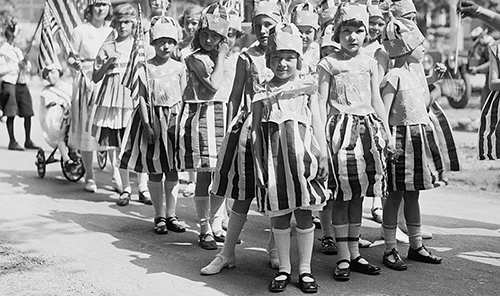
Now let’s go off on what looks like a tangent but isn’t really. Not long ago Peter Pry, a former CIA nuclear weapons expert who’s now director of the EMP Task Force set up by Congress, was asked what people should do in the event of an EMP attack. Here’s what he said:
“People should have a supply of food, water; have a generator. My father’s generation, the great generation that have lived the Great Depression and survived World War Two, all of those people were basically what today we would describe as preppers.
They had seen government fail and they wanted to be their own line of defense for their own family – and had to be, during the Great Depression.
You know, my father fed his family by hunting woodchucks, and they heated the home by collecting coal that had fallen off the trains along railroad tracks.
When I was growing up we only lived on a quarter acre, but we had a garden on every inch of it. My mother was constantly canning against the day of who knows what – a nuclear war, a great depression.”
Just look at what Pry is saying here. His father’s family were self-reliant to an astonishing degree. Most Americans buy their food at the market; if you can afford to do that you don’t hunt woodchucks for the pot, or use your whole yard as a vegetable garden. People heat their homes with gas, oil or electricity, all bought from a utility company. They don’t use their initiative and go looking at curves in the railroad, searching for a few lumps of coal that might have fallen out of a tender.
We really are a society of consumers now; when we need something, our first thought is “Where can I buy that?” A century ago it was very different. Outside the big cities, buying something was the last resort – what you did when you couldn’t make, grow or find it for yourself. And the annual Independence Day celebration held plenty examples of that attitude.
There have always been organized celebrations, of course. Bristol, Rhode Island, has held an annual parade every year since 1785 – the oldest parade in the USA. Other parades and festivals have been running since the 19th century. Today they mostly rely on corporate sponsorship; a hundred years ago they were more likely to be organized by local people, volunteering their own time to help their community celebrate.
Individual families also came together to organize and enjoy their own celebrations. The Independence Day picnic is an old tradition, but our grandparents’ generation would never dream of buying a special ready-made meal to take with them, or picking up lunch from a truck at a festival. Instead picnics were prepared at home, usually with the whole family getting involved.
Because the Fourth was a special occasion a couple of extra chickens might be killed and roasted, to be served cold at the picnic. There were no fancy sandwiches from an artisan bakery; instead it would be cold cuts, cheese or jelly – and usually they would all be home made.
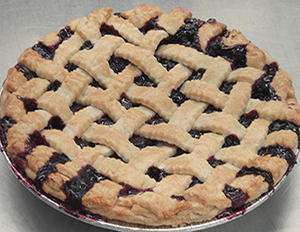 Today, you can go into any grocery store before the Fourth and find a huge selection of pies. Our grandparents made their own. If the family had fruit trees, canned fruit from last year’s harvest would be turned into pie filling. Apples and cherries aren’t just traditional because they make tasty pies; they also grow in most of the USA and can be easily preserved. That’s important, because when you’re making pies for the Fourth this year’s fruit is still on the trees; you need to use what you canned or dried last fall.
Today, you can go into any grocery store before the Fourth and find a huge selection of pies. Our grandparents made their own. If the family had fruit trees, canned fruit from last year’s harvest would be turned into pie filling. Apples and cherries aren’t just traditional because they make tasty pies; they also grow in most of the USA and can be easily preserved. That’s important, because when you’re making pies for the Fourth this year’s fruit is still on the trees; you need to use what you canned or dried last fall.
The holiday itself was much more of a family event than it is now. Modern families tend to be fragmented. Divorce is a lot more common than it used to be, but even if both parents and the kids are still together people do their own thing a lot more. In the past, families were closer. They’d learned that the hard way.
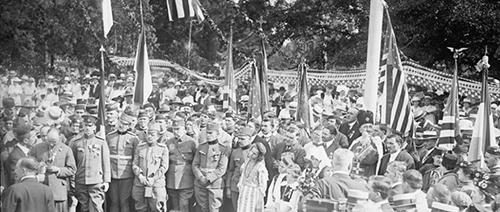
A century ago, when people gathered to celebrate the Fourth, America was involved in a major war for the first time in two generations. For the first time ever, hundreds of thousands of Americans were far from home fighting a war on another continent. Our army was spared the worst of that war’s carnage, but a lot of Americans didn’t come home. For the families left behind, and the soldiers themselves when they returned, the experience gave them a new appreciation of what they had. When families could be separated by events like the war, they wanted to make the most of the time they could be together.What our counterparts a century ago understood was that it’s not how much you spend that makes for a good Fourth of July. Let’s face it; who really goes to a picnic for the food? The day is about celebrating our history and independence in the company of the people who matter to you. Are you really going to have a better time lining up for overpriced food from a truck, than if you prepared a traditional picnic as a family and took it with you?
I believe that the Fourth of July, like most of our holidays now, is far too commercialized. We’d all be better off and happier if we took some tips from earlier generations, saved ourselves some money and enjoyed the day in a simpler way. Just as a bonus, doing it that way also helps build good prepper attitudes like self-reliance. And, at the end of the day, that’s one of the values America was founded on.
You may also like:
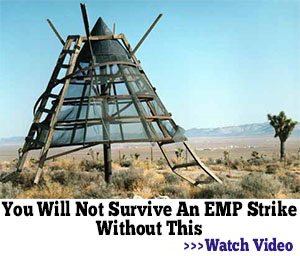 How Much Land Do You Need to Be Self-Sufficient?
How Much Land Do You Need to Be Self-Sufficient?
The Common Vegetable that Will Increase Your Heart Attack Risk at Least Two-Fold (Video)

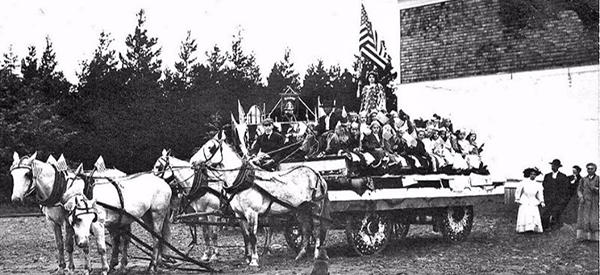







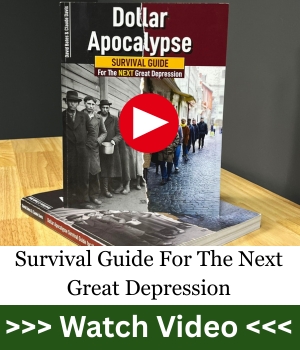



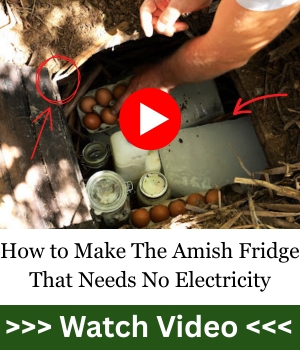








I’ve noticed how people shorten things like “I love you” to become “love you” … or “I miss you” to become “miss you” … or “Christmas” to “Xmas” … or even “merry Christmas” to become “happy holiday”. You get the point.
Let’s not get into the habit of calling our Independence Day the “4th”. It diminishes our very important holiday and the price that our forefathers paid for our freedom; this INDEPENDENCE we Americans proudly share. And yes, that is a substantial part of the root of our happiness. So. . . . .
Happy Independence Day America!!!!
Well said HH. I believe the significance of Independence Day has lost it’s true meaning. Most of our population are not independent and do not understand the importance of it. And also, it is my Dad’s birthday! 79 this year. GOD BLESS AMERICA!!!
How people say things is a personal choice. I think you’re getting caught up in tiny details that really don’t matter in the grand scheme of things. I say LOVE YOU instead of I love you. It means the same thing. I also say 4th, in full knowledge of what the 4th actually is. There are other cultures that have holidays they celebrate or commemorate, simply referred to as the day. Cinco de Mayo, for instance. The date is observed to commemorate the Mexican Army’s unlikely victory over the French Empire at the Battle of Puebla, on May 5, 1862. Another example is The Fifth of November. In the UK, this date is observed to commemorate the failed attempt on King James I’s life. “Remember, remember, the fifth of November…”
Basically, enjoy the simple things, and don’t get all caught up in trying to control how people speak. They do that differently, all over the world, and even in this country. It’s not something to get upset about.
The commercialization of these important holidays IS something to get upset about.
Relax. Keep prepping. And God Bless.
I never said people do not have the right to “personal choice”. I pointed out my personal observation! If you understood my ‘post’, you would have realized I was not “caught up in the details” but rather pointing out that the holiday that honors our freedom is called “Independence Day”. Not “the 4th”. Looks like you got carried away a bit there with all that “Mexican” bull shlt that has absolutely NOTHING to do with what I wrote about! But that’s your “personal choice” in action! See how that works?! (rhetorical) ((look it up))
Further more, I did not try to “control” how anyone speaks! I merely pointed out that our freedom is celebrated on the day that is appropriately known as “Independence Day”; not “the 4th”.
Obviously I can explain it to you but I can not comprehend it for you. You’ll have to work on that. Meanwhile, take it easy and enjoy your Independence Day. And God bless you too.
I find the day Independence day or the 4th both insignificant if we don’t pas down the meaning of them example Christmas by observation I noticed most young kids think of it as a day for gifts. Some of them don’t even know who Christ is. The day means nothing if you don’t pass on not only the tradition but the meaning as well. I’ve even come across some 8 year old that think of Thanks Giving as family gathering, Foot ball and eating till you burst. I figured that they where taught in school what Thanks giving was. But it seemed our schools have moved away from teaching the meaning of it. At least among the children I came across. The wording may not be important to some but the meaning should be important to all. An other thought about the wording buy shorting it don’t you think it could lead down the same road as the word “gay” in my younger days it meant joyful and happy, Don’t need to tell you what it means now. Buy shorting it as if feel from history it gives us an excuse to lay down the meaning for the next generation. after all people know what your saying when you say REMEMBER THE ALAMO how well do you think those thought over the last 2 hundred or so years would have been if people just said ALAMO or March 6, x-mas in another 50 to 100 years may be the only thing remembered about The birth of Christ at least Christmas gives a representation about the baby Christ. True words are just words but history has shown alterations of those words given with a few generations of people total change it’s meaning and purpose. I for one would love to keep the meaning and traditions for not only another generation but a thousand of them.
Since you on the subject of the importance and meaning of language, can we get back to calling our government officials by their originally intended purpose. I’m tire of hearing them calling themselves and the morons in the media calling them our “elected leaders”. They are not supposed to be anything more than representatives. We lead ourselves!
Sorry for the political crying. But language is extremely important when the meaning of the words are transferred to other words that downplay or degrade the meaning and value of the original ideas.
Hear! Hear! Well said. meanings are very important. Language is how we communicate with others and frequently even with ourselves. If you want to read eloquent English, read William F. Buckley, Jr. or Winston Churchill. You don’t have to agree with their politics, read them just for the pure pleasure of their expressive use of the English language. Which by the way, because of its polyglot nature, used correctly, is one of the most precise languages extent in the world.
Xmas has been used since the 12th century. It comes from the Greek “Xp̄es mæsse”. Which translated means Christ mass. The letter X is used in many circumstances where the “kris” sound is needed. We used to call ourselves Xtians also but that has fallen by the way side.
But i do agree it is Independence Day, its like saying merry 25th of December when saying happy 4th of July.
We pack our own food when we road trip too. Just find a shady spot, set out the checkered tablecloth, and the picnic basket, and we have lemonade, fried chicken, all the good stuff, instead of fast food.
I can tell you how my Father was enjoying the 4th of July in 1918. He was in France in the US Army stationed with the French Army as an ambulance driver. So he had fireworks all around. And when there was a lull in the fighting he would be driving wounded men back to a hospital for care, actually even if there was NOT a lull in the fighting he would be driving.
My grandfather was in combat in France with the 2nd Division on July 4, 1918.
Great read! Thank you. I wish I knew what my great-grandparents were doing then. They didn’t tell me, but I know they farmed. This gives me an idea of what they were up to. To those overseas, I think of them honorably. In the last lines of this article, I believe “prepper” could be interchanged with “proper”.
Out here in the country where there are no rules there are always a few neighbors who throw big family parties on Independence Day, they fire up big smokers with mesquite wood, beer gets iced down, gunfire can get pretty general, someone always has a band playing, but mostly they pool their cash and buy enormous quantities of fireworks. Me and my Sweetie will grill steaks and drink Margaritas and once it gets dark kick back on the porch and watch the show. People spend hundreds and thousands of dollars on those big ass mortar shells and Grand Finale packages, what a trip!
Where I live, there will be some fireworks, both backyard type and professional. Some of the higher professional ones we’ll be able to see from our house if it’s clear. Mostly, at dark, the will be a lot of gunfire for a few minutes and maybe the neighbor with the cannon will set it off a time or two. Then all will be quiet again. There might even be a cookout or two somewhere around.
“Where can I buy that?” As in the generator that will stop working as soon as you are out of fuel, which would be very soon, if the electricity goes and vehicles that carry it can’t be filled and gasoline pumps do not work. Bad example of preparing. Unless you do as my daughter’s neighbor, huge propane tank, that developed a leak and blew up his house and chicken coop. Great luck, since he and wife were staying with his adult children to help grand kids open up Christmas presents. Next idea, that requires no fuel from pumps. This was not meant to offend easily offended people. As to the Mexicans, that is a holiday only celebrated in a very small area of Mexico, asides from in the US. Chill out. Now the Alamo, half the people defending it were Mexicans and of the white Americans, some had in-laws that were Mexicans and the Alamo was in Mexico, less than 200 years ago. Being that I am an Army brat (now 71) the 4th of July is something you carry in your heart or you don’t. What matters is what are you willing to do for your nation NOW. Are you willing to die? If not who cares what you call it, you don’t know what it means, anyway. Not too touchy feely, I’m afraid. And, I am into history.